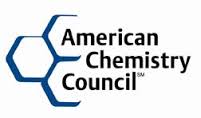Chemycal has been acquired by 3E
Learn MoreChemycal has been acquired by 3E
Learn MoreDiscover how Chemycal PRO helps you boosting your regulatory monitoring:

WASHINGTON (May 22, 2019)– Today, Dr. Kimberly Wise White, a toxicologist at the American Chemistry Council, testified at a U.S. Senate Committee on Environment and Public Works hearing on potential legislation to address Per- and Polyfluoroalkyl Substances (PFAS). Following her testimony, the American Chemistry Council issued the following statement:
“ACC shares the goal of identifying ways to address and, where warranted, mitigate risk associated with PFAS chemistries. The chemical industry supports a comprehensive and integrated approach to managing these substances, including specific measures to prioritize, evaluate, regulate, innovate, advance best practices, and monitor PFAS.
“However, as Dr. White testified today, taking an overly-broad approach to addressing PFAS chemistries that lacks a scientific foundation will make it difficult to implement effective regulatory policies that protect public health. Circumventing rulemaking by developing legislation that directs or requires an agency to bypass its own procedures undermines the very system Congress helped design to ensure an independent and transparent regulatory process. Sidestepping the regulatory process also eliminates critical public input and does not allow federal agencies to exercise their expertise, both of which may lead to regulatory decisions that lack a sound basis and that do not focus on priority issues.
“Science-based approaches should be the foundation of legislation and regulation, and the leadership of federal agencies that have a primary mission to protect human health and the environment is critical to successful implementation of any regulation.
“Importantly, a single class, one-size-fits-all approach to evaluating PFAS is not scientifically justified. While names may sound the same, no two PFAS substances are exactly alike, thus it is critically important that chemical-specific information be the foundation for any evaluation. In fact, just last week, a National Academies Committee evaluating the question of whether a single class approach could be applied to evaluate another set of chemistries concluded that such an approach was not scientifically credible. Instead, the National Academies suggested the identification of subclasses using information like chemical structure, physical and chemical properties, toxicology data and predicted biologic activity to facilitate decision-making. ACC believes that a similar approach should be taken in addressing PFAS.”
CONTINUE READING ON www.americanchemistry.com
2013 © MyChemicalMonitoring. ALL Rights Reserved. About Us | Terms and Conditions